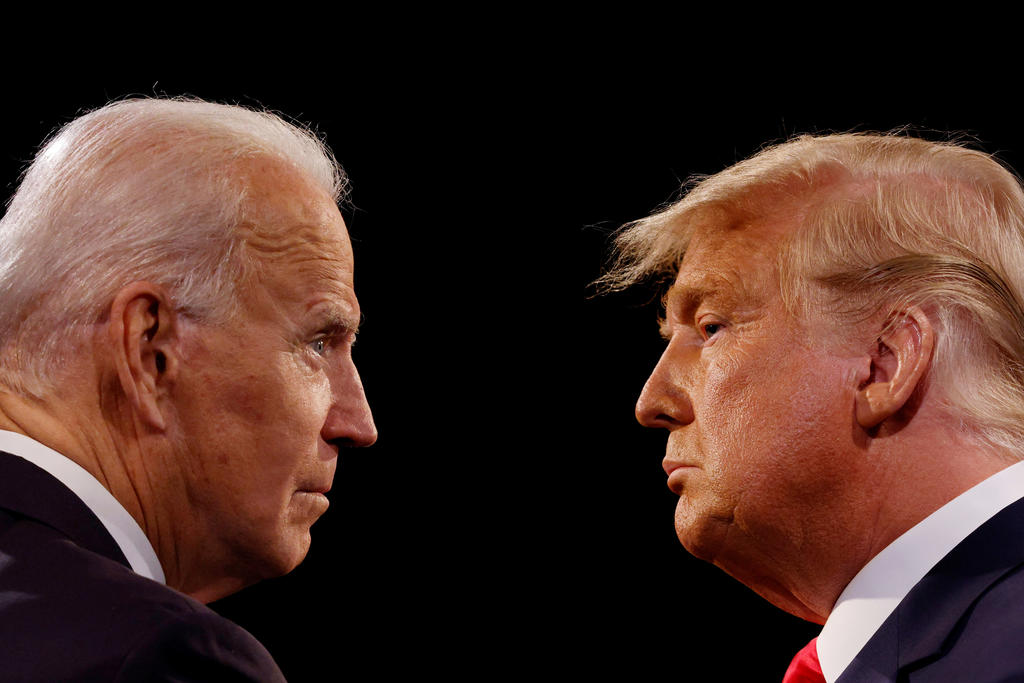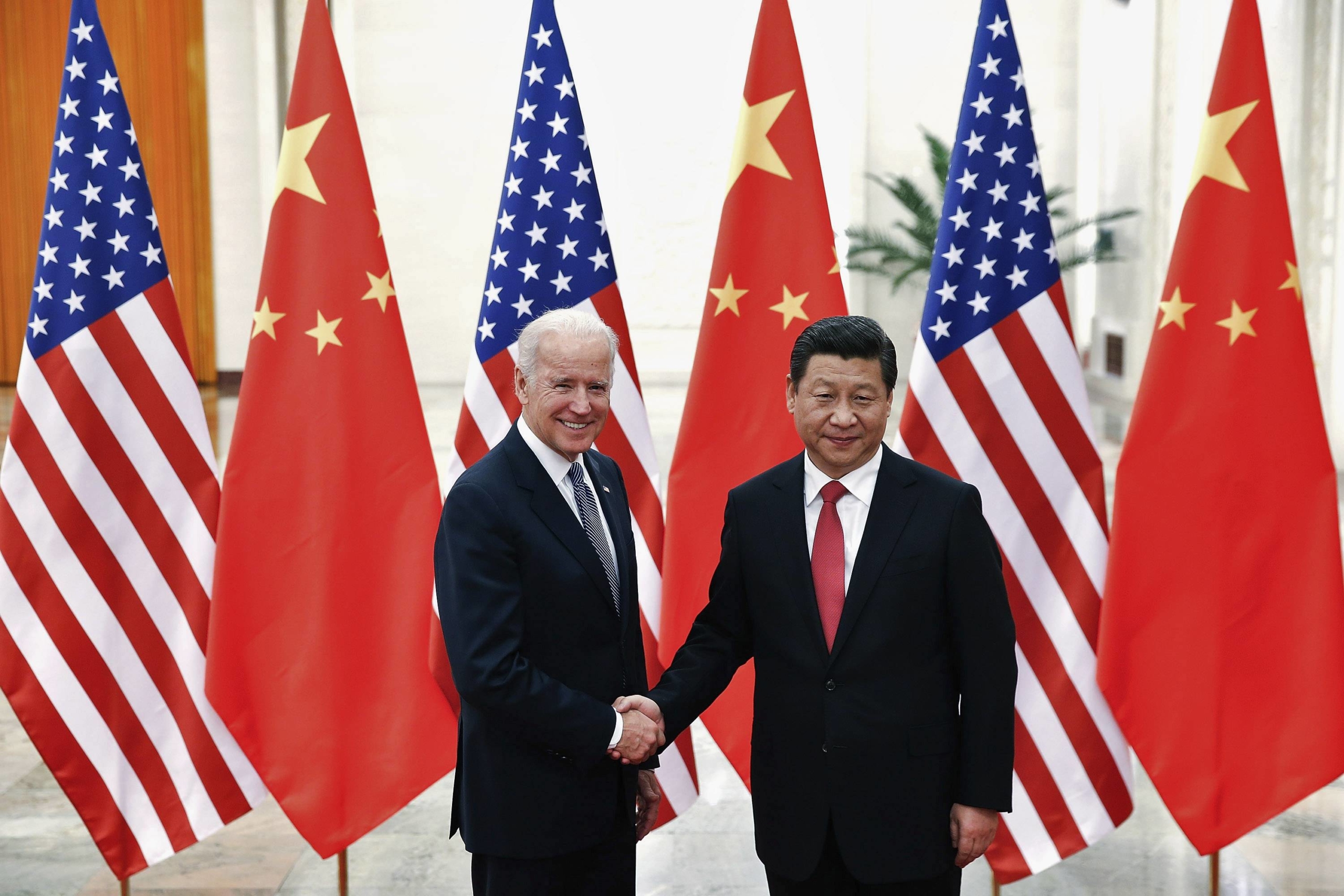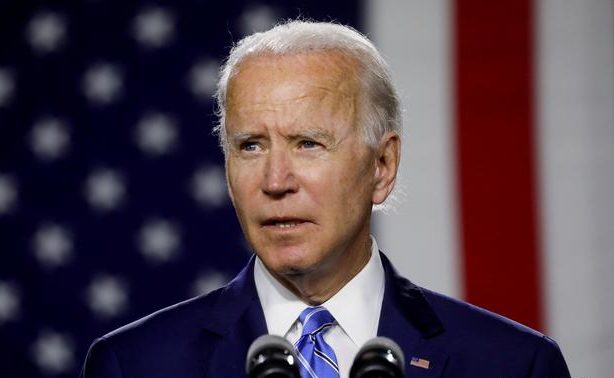President-Elect Joseph Robinette Biden Jr’s strategic dilemma would be whether to embark upon a fast track bold damage reduction trajectory or take a cautious damage control route. The thought of Donald Trump getting more votes than all previous presidents of the US will, at least, keep pricking Biden’s continence.
America’s 2020 Presidential Election has reinforced the notion that the country doesn’t matter, politicians are birds of the same flock and elections are perceived as free and fair only by the winning side. With the slightest chance of losing in sight, the prospective loser starts shouting about factual or fictional foul play. Once a norm, now free and fair elections are more of a fairy tale the world over.
Those who had written off President Donald Trump due to his far-right mind set, persistent erratic behaviour and poor Covid-19 policy are quite astonished. Strength of far-right politics, China bashing and appeasing of Jews had almost won him the second term. Election 2020 will be remembered as the most consequential elections in the US history.
According to R Jagannathan the surprise is not that Donald Trump has lost to Joe Biden, but that Trump’s voter base is intact despite the best efforts of the Democrats to demonise him, change voting rules, and a partisan media that went hammer and tongs against Trump. Not only that, the alleged unpopularity of Trump was supposed to have helped the Democrats regain control of the Senate easily; It is not an outright rejection of Trump and his ideals. Barring Biden, more Americans have voted for him than all his predecessors.
After four horrible Trump years many Americans want to believe that the United States is on the verge of a new beginning. However, according to Daron Acemoglu: “Trump won’t be the last American populist [President]”. Trumpism is a way of life for a substantial number of Americans. The roots of Trumpism didn’t begin or end with Trump or even with American politics they are closely connected to economic and political currents affecting much of the world. The need for an autocratic, populist presidency arose from the deep fractures in the US politics and society. Americans must understand and address these if they are to prevent similar forces from once again seizing the nation.
America needs a heeling touch. Election 2020 has brought to fore a highly polarised US society on partisan lines; extraordinary high turnout and razor edge results portray a high intensity of the divisive sentiment. For Biden, it’s an opportunity to provide a healing touch to American society and reshape the “Ugly American” image of the US abroad. And he is appropriately suitable for this task due to his prudence, maturity and balance. In their victory speeches both President and Vice President elect declared that combating climate change will be one of their administration’s top priorities, alongside containing COVID-19, rebuilding the US economy, rooting out systemic racism, and bridging America’s political divides.
Though gone, Trump has left a deep imprint that will keep reminding us of his presence on the American political scene. There are no signs of reversal of far-right sentiment that Trump gifted to the US society, reversal of heightened fault lines would need Biden’s constant care.
With a change of guard at the White House, there won’t be any substantial change in the US policy towards Pakistan, beyond a symbolic euphoria of an ease-out. America’s current US policy towards Pakistan is a subset of its China phobia. Hence, the Biden Administration will keep pumping in multi-dimensional strategic advantages to further empower India in the vain hope that one day it will fight and browbeat China on America’s behalf. Even though India had disappointed the US twice during Trump’s Presidency Doklam and Ladakh crises.
Like most of his predecessors, candidate Biden did a lot talk of solving the Kashmir dispute. However, like his many predecessors, he is likely to forget about it much earlier than his inaugural. America’s Pakistan policy is hostage to India’s approval. Over the last decade or so, American articulations regarding Pakistan have been incrementally adopting Indian dictum and tenor. “Since Trump and Biden both have, generally [been] speaking, similar views on Pakistan and the region, I don’t think we should overstate the election’s impact in South Asia,” said Wilson Centre’s Deputy Director for the South Asia Programme at the Woodrow Wilson Centre Michael Kugelman.
Some of Pakistan’s foreign policy experts believe that with Joe Biden in the White House, a return to “normalcy” is expected, though with caveats. The Trump-era contempt for diplomacy would certainly come to a close. But Pakistan shouldn’t raise the bar of expectation.” Biden is likely to restore the dignity of all international organizations that will help Pakistan because there will be a certain level of predictability about America’s forthcoming actions.

The Biden administration is expected to return the US to the international organisations abandoned by Trump and re-join the Paris Climate agreement. He is likely to invest more in its relationship with like-minded countries. Biden’s campaign had often accused Trump of not treating alliances appropriately.
Joe Biden’s platter is full, depends on where he wants to begin from. If he takes a course to un-Trump America, he would have achieved a lot if he is closer to retrieving the US to the status at which Obama-Biden duo handed over to President Donald Trump. Quick recommitment to Trump stampeded international treaties like Climate Change, Iran Nuclear deal, Oslo Accords, reinforcing commitments to negotiate lapsed arms control and disarmament treaties, addressing the concerns of EU, Nato, and other allies, stopping further settlements in the West Bank, reversing shifting of US embassy to Jerusalem etc. could be good starting points. Pacifying its neighbouring counties would ease out the anti-America sentiment in American continents.
Biden had been deeply involved in South Asian affairs from the time when he was Chairman of the Senate Foreign Relations Committee, and played an instrumental role in having the $7.5 billion Kerry-Lugar-Berman bill passed by the US Senate.
“A Biden White House would have a better understanding of what is important for the region,” Kugelman said. Biden, who served as Obama’s deputy for eight years, experts believe, will have a more conciliatory foreign policy towards China and even Iran.
More important issues are bridling China phobia, stabilising relations with Russia and rationalising India pampering. Due to erratic foreign policy trajectories the US has embarked upon some lose-lose ventures. The impact of anti-China drive is consuming the US strategically and economically. Russia has assumed the role of a wild card in World politics and India is fast becoming a rogue don of South Asia.
‘Contain China’ is America’s No 1 core interest. Over the decades, the US has invested very heavily in nurturing Hate-China sentiment amongst its own people. This roller coaster has attained its own critical mass, and it’s no longer possible to reverse it through a mere presidential wish.

Anti-china is a bipartisan malice in the US it is fast turning into an industry and it’s only a difference of shade whether it’s a Democratic President in the White House or a Republican. Anti-China sells well and brings political and economic dividends to politicians and businesses. “Getting tough on China has become a source of rare bipartisan consensus in a polarised political climate,” wrote Hui Feng, a senior research fellow at Australia’s Griffith University’s academic website, The Conversation, “a fundamental U-turn in US-China relations is still unlikely.”
Biden got over 70.7 million votes, more than anyone who has ever run for President. American voters came out in millions upon millions to produce the greatest presidential election voter turnout in over a century. They sent across a variety of messages, most of them quite positive. Voters rejected the prevailing narratives of a media determined to make the election a pure referendum on Donald Trump’s character. Joe Biden faces a senate parity eventually; he may be faced with a Republican Senate majority and a 2022 contest that will put the House of Representatives squarely in Republican sights.
Biden has met Chinese President Xi Jinping several times when he was in government, and he has said that under his administration the US would lead by the “power of its example” rather than the “example of its power”. Analysts say while Biden’s tactics might change, the tougher US strategy towards China would remain given its broad bipartisan support.
Any American elections going for court adjudication is a rarity but this has happened now. America’s 2020 elections brought to the fore the memory of a decent era when Al Gore had won the elections but he conceded just because he did not want the US to go through the agony of uncertainty that a manual count of each vote could have caused to the American people and economy. During the current era of rascals, Al Gore may appear a saint, but such were the US electoral norms of those not so far away days.
Actually, America as a nation lost the 2020 presidential elections that Biden may have not quite won, and Trump may not have quite lost. America also lost the race for decency, tolerance and credibility of its democracy and government system.




